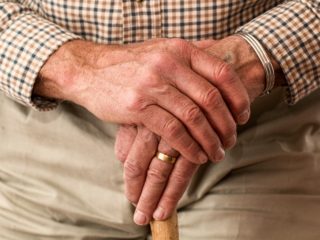The Court of Appeal clarifies the causation question to be put to the jury in medical malpractice trials (and lots more).
Released January 18, 2017 | Full Decision [CanLII]
This action was brought by the surviving spouse of a 36-year-old woman, Rossana Surujdeo, who presented to hospital with flu like symptoms and died approximately 9 hours later. The cause of her death was a rare cardiac condition. The trial proceeded on liability only, damages having been previously agreed upon in the amount of $600,000.00.
In finding for the Plaintiff, the jury concluded that the defendants, the emergency physician and the on-call internal medicine specialist, failed to follow up on important laboratory test results that would have helped them diagnose and treat Rossana’s deteriorating condition. The jury further held that the Defendants’ respective breaches of the standard of care caused Rossana’s death.
The trial judge, Justice Arthur Gans, signed judgement after ruling against a motion brought by the Defendant physicians to set aside the jury’s verdict. The defendant physicians appealed, seeking to set aside the judgment of Justice Gans.
The Appellants advanced five main grounds on appeal submitting that:
- Several rulings by the trial judge surrounding the use at trial of the lab test results were incorrect and created an unlevel playing field in favour of the Plaintiff;
- The legal instruction to the jury by the trial judge on causation was flawed, and unbalanced in favour of the Plaintiff;
- The trial judge provided the jury with verdict questions that incorrectly stated the legal test for causation in that they did not use the words “but for”;
- The trial judge gave an incorrect response to a question from the jury about the number of jurors required to agree with each answer to the verdict sheet questions; and
- The trial judge refused to poll the jury at the appellants’ request.
The Court of Appeal held that the trial judge’s sole errors were that the wording of the question to the jury regarding causation ought to have included “but for language” and that the trial judge incorrectly stated he did not have jurisdiction to poll the jury. Nevertheless, the Court of Appeal did not order a new trial as the jury question as posed did not produce a substantial wrong or miscarriage of justice. Also, the trial judge was correct not to poll the jury despite having the jurisdiction to do so.
The important takeaways from this case are as follows:
- The Causation Question to the Jury
The language of the jury question on causation must reflect the “but for” test and ought to track the language of the Supreme Court of Canada in Clements.
- The Charge to the Jury
The jury charge is not about the number of words dedicated to a given issue. The charge needs to be read as a whole and, in some cases, in the context of closing submissions.
- The Requirement that 5 out of 6 Jurors Agree on an Answer to a Jury Question
In the analysis of section 108(6) of the Courts of Justice Act, the Court found that 5 jurors who agree on the “bottom line” conclusion, do not need to agree on each “particular” they are required to list that leads them to that “bottom line”. The Court of Appeal confirmed again that “a jury is entitled to arrive at a verdict by different evidentiary routes and need not rely on the same facts”.
- Polling the Jury
A trial judge has inherent jurisdiction to poll the jury to ensure a fair trial. However, polling the jury to ascertain whether each juror agrees on each of the “particulars” would be an “impermissible” reason to exercise this discretion.
Counsel for the Plaintiff: Richard Bogoroch












